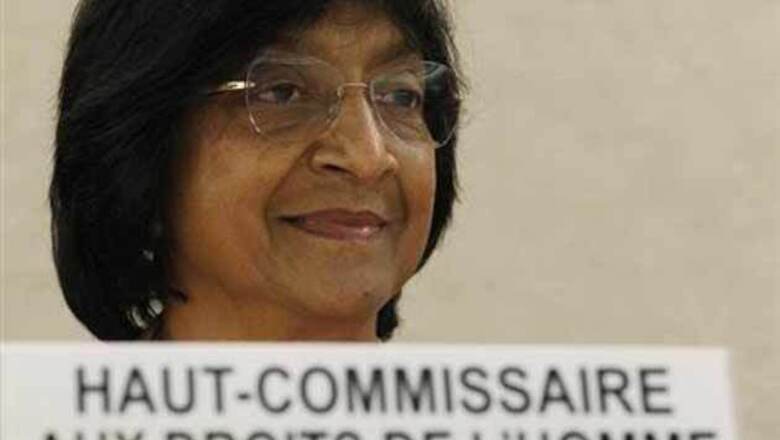
views
Geneva: The UN human rights chief called on the United States on Friday to close down the Guantanamo prison camp, saying the indefinite imprisonment of many detainees without charge or trial violated international law.
Navi Pillay said the hunger strike being staged by some inmates at the Guantanamo Bay US Naval Base in southeastern Cuba was a "desperate act" but "scarcely surprising".
"We must be clear about this: the United States is in clear breach not just of its own commitments but also of international laws and standards that it is obliged to uphold," the United Nations High Commissioner for Human Rights said in a statement.
US President Barack Obama pledged four years ago to close the controversial facility, opened by the Bush administration in January 2002 to hold men captured in counter-terrorism operations after the deadly September 11 attacks on America.
Pillay voiced deep disappointment at the US government's failure to close Guantanamo despite its repeated commitments, but welcomed comments by a White House spokesman last week reiterating the intention to do so while citing congressional legislation as the prime obstacle.
About half of the current 166 detainees have been cleared for transfer either to home countries or third countries for resettlement, Pillay said. "As a first step, those who have been cleared for release must be released," she said.
"FESTERING FOR MORE THAN A DECADE"
"Others reportedly have been designated for further indefinite detention. Some of them have been festering in this detention centre for more than a decade," she said.
Guantanamo detainees accused of crimes should be tried in civilian courts, especially as the military commissions "do not meet international fair trial standards" despite improvements since 2009, said Pillay, a former UN war crimes judge.
Of the 166 remaining detainees, only nine have been charged or convicted of crimes, according to military records. The 166 detainees are from 23 countries, the Red Cross says.
Forty inmates are currently staging a hunger strike to protest against their indefinite detention, according to a US military spokesman at Guantanamo. Some have lost so much weight that they are being force-fed liquid nutrients through tubes inserted into their noses and down into their stomachs.
The International Committee of the Red Cross has visited Guantanamo regularly since it opened to check on conditions of detention and ensure humane treatment. It is currently carrying out its 93rd visit, expected to last another week.
The ICRC sent a doctor and another delegate to Guantanamo on March 25, 2013, a week earlier than planned because of concern about a growing hunger strike among detainees, the humanitarian agency said at the time.
An ICRC team of 13 now there are discussing issues including the hunger strike separately with authorities and in private interviews with inmates, ICRC spokesman Alexis Heeb said.
"Detainees can raise any problem they want to bring to our attention, this can be issues of detention, Koran issues, requests for medical attention," Heeb told Reuters on Friday, referring to media reports about searches of Korans for contraband.
The ICRC has a clear position of being opposed to forced feeding or forced treatment and upholds the principle of leaving the right to detainees to choose his or her fate, he said.
ICRC President Peter Maurer is expected to raise concerns about Guantanamo in talks next week with senior US officials during his three-day visit to Washington, Heeb said.
"We continue to hold detainees under the internationally recognized Law of War and in keeping with the best of our core values, safeguarding and humanely treating all who are in our care and custody, there. Assertions that present some alternate narrative simply do not withstand intellectual rigour," a US Department of Defense spokesman, Lieutenant Colonel Todd Breasseale, told Reuters in response to Pillay's statement.



















Comments
0 comment